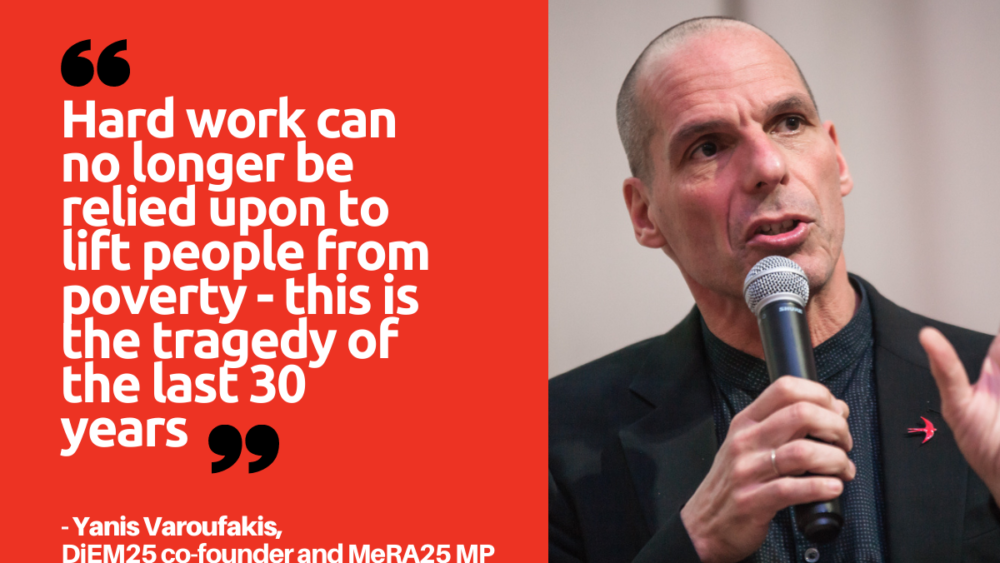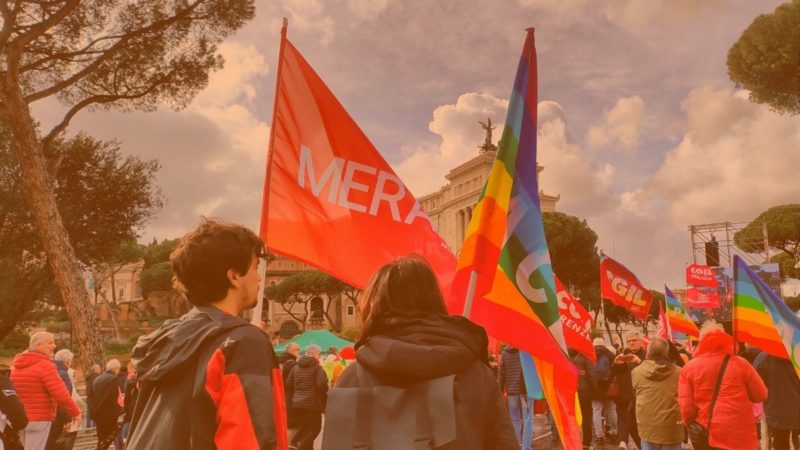“That’s Debatable”: Is it time to redistribute wealth?
Intelligence Squared host John Donvan moderates a discussion between former U.S. Secretary of Labour Robert Reich, former U.S. Treasury Secretary Lawrence H. Summers, former Greek Finance Minister Yanis Varoufakis and Manhattan Institute Senior Fellow Allison Schrager. They are on “That’s Debatable.”
Robert Reich describes the outcome of his research in rust belt states such as Minnesota, Wisconsin, Missouri, in which he conducted free floating focus groups. In response to his question ‘Who do you support in the upcoming presidential race?’ he was surprised to hear that most people spoke of their liking of Donald Trump and Bernie Sanders ‘in the same sentence’.
“What I discovered after listening to their stories — these middle class, working class people in the rust belt — what I heard from them is: ‘We want somebody that’s going to shake things up, we want somebody that’s anti-establishment, we want somebody that’s going to be on our side’.In other words, what we have created in this country, because of the enormous power of great wealth, concentrated in the hands of a few, because of the power of great corporations, concentrated power, in terms of their political ability to get what they need — people in this country believe the game is rigged and they are willing, again and again, to support somebody who they believe is going to topple the power structure. That is a recipe for instability.”
When asking about the ‘trade offs’ of wealth redistribution, the moderator posited that it may engender the most costs while granting the fewest benefits. To this, Yanis Varoufakis replied that the asymmetries within the current capitalist system are too wide to remain unaddressed. Indeed, they leave the disenfranchised with no ‘weapons’ to defend themselves in the ‘gladiator arenas’ that they must struggle through to survive. He states that:
“If life under capitalism resembled the 100 meter sprint in the olympic games, of course it would be absurd to ask the fastest athletes to slow down or stop them of going fast in support or solidarity with those lagging — that would be absolutely ridiculous and nobody would want to watch this race. But life is no olympic games. It resembles more these days the Roman arena in which very well armed gladiators are facing victims that are weaponless, victims who are defeated not because they are not try hard enough or because they were not clever enough but because they are unarmed because of the asymmetry in the initial distribution of armor (of wealth)! For a while now, I think we know that, don’t we? You see, hard work can no longer be relied upon to lift people from poverty — this is the tragedy of the last 30 years.”
He then conveys ‘his kind of socialism’ in which the true spirit of competition can actually be invited to thrive.
“Let me convey (…) my kind of socialism. The kind of ideal that fires me up. It would be a sporting parallel but not with the olympics, but the national football league — your NFL. Where in the interest of competition, not fairness, teams face a harsh salary cap and the best players (the best young players) are forced to sign up for the weakest of teams. By preventing the successful team from monopolising the best players, the NFL’s constraints liberate the true spirit of socialism. This is the point about socialism — which is NFL — living together with markets in sync with harsh competition — which is what the NFL is — is I think a good model for the future.”
Do you want to be informed of DiEM25's actions? Sign up here




